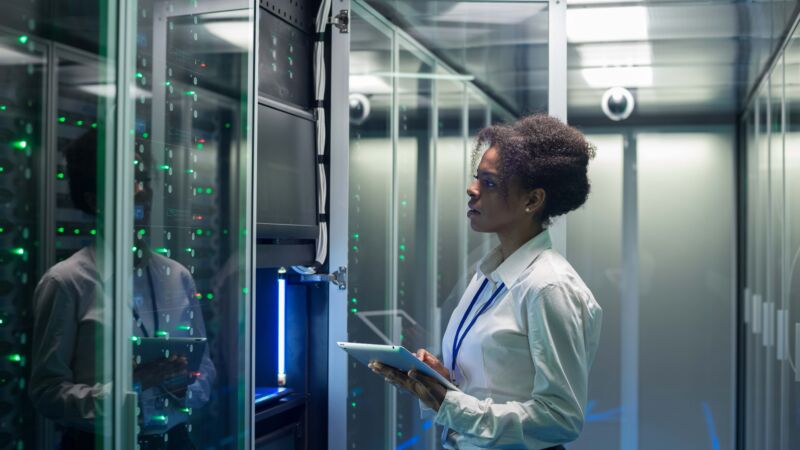As artificial intelligence makes more in-roads among professional workers, it may provide a pathway for many in the legal, accounting, corporate, and government sectors to find more meaningful work
Automation and evolving artificial intelligence (AI) technology continue to remove low-value tasks from professionals’ workdays in the legal, accounting, corporate, and government sectors. This shift not only frees up time for professionals to focus on billable and growth-oriented tasks but also presents a unique opportunity for managers to strike a balance between technological advancements and employee well-being.
Clearly, the impact of AI and automation on daily work mirrors the shifts of the 19th century’s industrial revolution. New technology historically has reduced the need for human labor in production but has not negatively impacted overall employment numbers. As the power of machines and AI begins to rival human ingenuity, it raises two concerns: that this will be the first time that technology negatively impacts work opportunities, and whether employees will still find meaning and satisfaction in their jobs. In contrast to past technological shifts, some future prognosticators suggest that more than 350 million jobs globally will be disrupted within this decade.
Yet, for most people, work is not just about monetary gain. The psychological benefits of employment include skill development, a sense of purpose and of achievement, and relatability with colleagues. Conversely, the potential negative consequences of unemployment for an unemployed person may be isolation, de-skilling, and lack of a sense of purpose tied to work.
And while AI-based tools and work process likely will augment work for many, it is unlikely to wholly eliminate the need for human labor. The benefits of AI in its ability to make work safer, reduce human error, and increase productivity are clear, but the question remains: How does this technology impact the human beings it works alongside?
Protecting meaningful work in the age of AI
As AI continues to be implemented in workplaces, its impact on employee well-being and motivation is critical. Indeed, management decisions play a pivotal role in either uplifting and empowering meaningful employee experiences or negatively affecting employee well-being. Management decisions that protect employee autonomy, increase opportunities for learning and demonstrating skills, and support greater transparency and use of data in decision-making increase meaningful work for employees.
Alternatively, AI implementation which reduces employee autonomy, increases employee surveillance, reduces employee socialization, causes injustice or societal harm, and can’t be clearly explained decreases employees’ sense of meaningful work. These twin needs — for meaningful work and for protection of employee well-being — align with public sector-specific industry reports that showed meaningful work was the second-highest driver of employee retention and, more alarmingly, that the public sector had fallen in terms of employee well-being since the global pandemic.
How does AI impact employee well-being?
While limited academic literature exists on the subject of employee well-being and automation, one report suggests that middle-skilled workers who perform repetitive functions are at the greatest risk of job displacement, and another found that on average, 30% of workers fear displacement from their present job due to automation and AI. Clearly, anxiety and well-being directly impact job performance, and further studies indicate that dissatisfied employees are less motivated, demonstrate less effort at work, and are more likely to turn over in their positions. And not surprisingly, rapid technological adoption without adequate training can frustrate employees and increases their anxiety.
Managers have a clear opportunity to protect their employees’ well-being and ease potential anxiety as automation and AI become more universal in the workplace. Some steps managers can take in this regard include:
-
-
- Reinforce to employees that technology can augment human effort, rather than replace Encourage employee autonomy in experimentation and adaptation when new technology is introduced. Ask how employees can further agency mission with the use of new technology.
- Technology can be isolating in a workplace environment, so it’s crucial to counter the social isolation that technology may bring by providing more opportunities for colleagues to work together.
- An onslaught of new technology for employees to learn can be overwhelming and shake their confidence. Managers should provide ample learning opportunities and support for their employees as new tools are introduced.
- Share successes in how these tools have furthered the organization’s mission and reinforce employees’ recognition that their work is in fact meaningful.
- Automate the most mundane tasks first. Consider processes that are redundant, prone to error, or time-consuming as the first candidates for automation. This could act as a carrot for employees who may be hesitant about new technology.
- Provide one-on-one coaching and support to employees that focuses on strengthening their skills. Automation and AI can complement employee skillsets, which can be linked to higher quality work, and increased employee confidence.
-
Some humans are skeptical of automation, robotics, and AI, of course, but humans are more likely to embrace technology if it is shown to create more opportunities for their leisure time. In fact, as the work week has continued to shorten over the last several decades, some have suggested that AI could lead to wide-scale adoption of a four-day workweek due to increased productivity.
And if new technologies are implemented in a way that prioritizes employee well-being and quality of work (versus quantity), we could see positive impacts such as a more well-rested and alert workforce, reduced carbon impact with a shortened work week, and increased gender equality across many professions.







